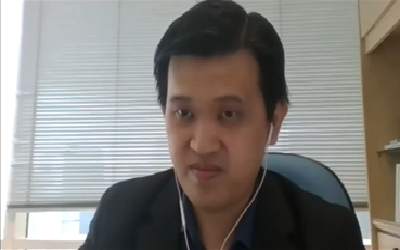The current, follow up accounting forum series 2020 still focuses on minimizing the gap between theory and practice on audit competencies. This particular seminar will be emphasizing on the need of data analytics skills and how audit will look like in the digital age. We invited Mr. Handrow Cahyadi, Director of Audit and Assurance, KPMG Indonesia as a speaker and Dr. Karlina Aprilia, Ak.,CA as from Universitas Diponegoro as moderator. The seminar was held on-line using Zoom on 31 August 2020 at 10.00 – 13.00. The event was attended by accounting students, lecturers and professors, practitioners from many entities in the country.
Mr Handrow argued that audit has changed. Required skills and competencies have also rapidly changed. A KPMG and Forbes insights survey reveals that respondents want auditors to not only have technological skills, but be more proactive and prepared to expand the role of the audit. Similar in other areas, there are several drivers that rapidly change manual-driven audit activities to automatically-driven. The drivers include: exponential growth of freely accessible digital data, rapid new tech adoption, frictionless access to technology and demographic shift of reduction in working age population and need for talent.
Mr. Handrow also discussed several important aspects that drastically changes the way auditors audit. Use of drones are much commonly used as it could improve audit quality, increase cost savings, better client experience and could enhance auditors competitive differentiation. Cognitive automation should also be able to analyze larger, more complete data sets. In doing so, data analytics could help extract data directly from complex financial systems and consequently, easier, faster and more efficient and effective decision making.
After almost two hours of discussion, he concluded the seminar with several important concluding remarks of a high quality audit. First, regarding the people aspect, established audit methodology and governance to drive quality and enable team member engangement. In this case, tech- and data-savvy auditors are indeed a must to face the challenge of digital era. Second, well controlled flow of information from those who manage data and processes to key decision makers should be maintained. Third, Audit should have access to quality data within secure environments based on clearly defined governance policies and finally, auditors should possess the right platforms, tools and technologies to meet the needs of specialists and auditors.
https://www.youtube.com/watch?v=nWvEoyaTeio

